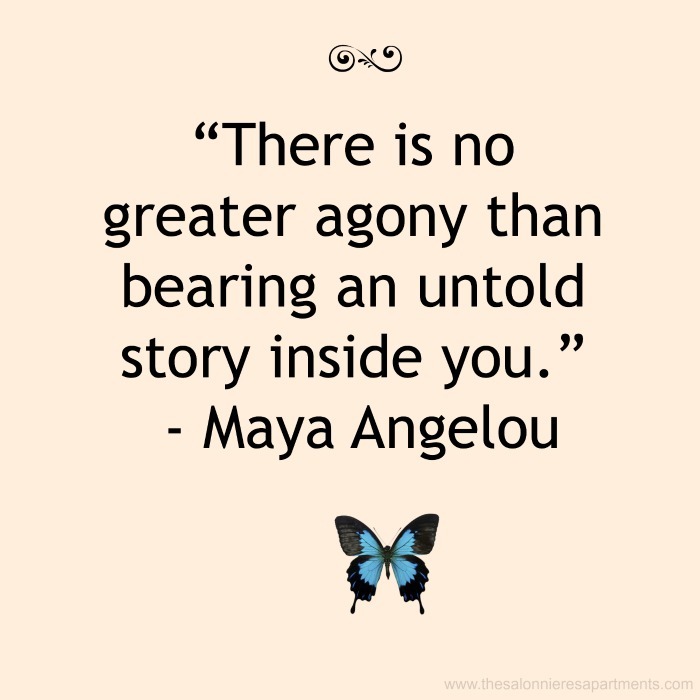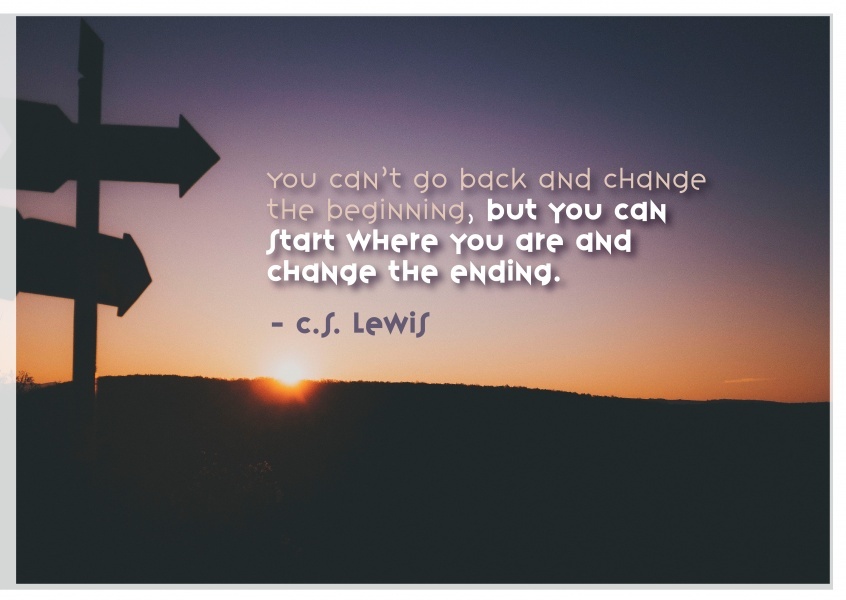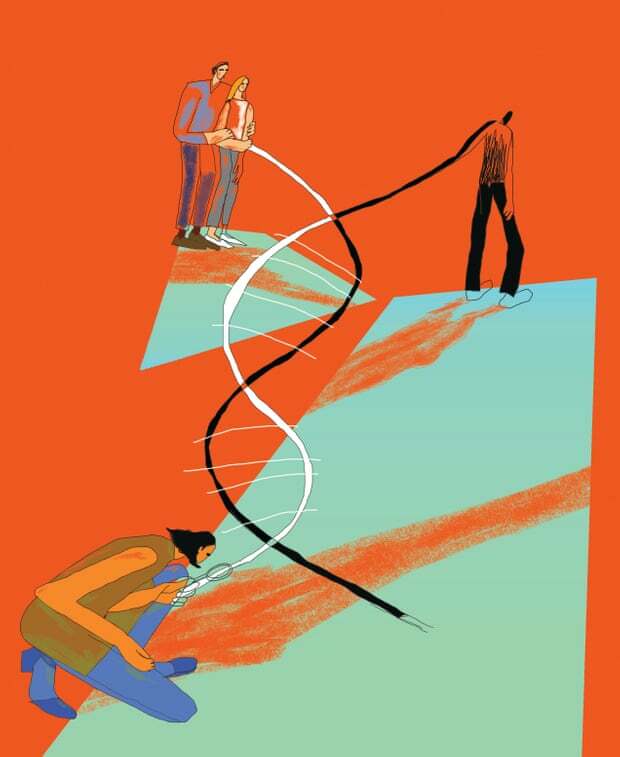Are you a parent of a donor-conceived adult who is only now finding out the truth of their conception, either because you put off telling them until now or because they’ve discovered the truth on their own? If so, you may be nervous about how to approach this delicate conversation with your child. The following tips will help you navigate the discussion.

8 Tips If You Are Planning to Tell Soon…
1. When is the best time to tell? Now.
This is not your secret to carry. There will never be a “perfect” time, so the sooner, the better. Make sure you’ve done the psychological work necessary to be emotionally capable to have this conversation, e.g., counseling or soul searching on your own. Take some deep breaths, and try to relax. Many people have walked this path before you, and they have all survived!
This is not your secret to carry. There will never be a “perfect” time, so the sooner, the better. Make sure you’ve done the psychological work necessary to be emotionally capable to have this conversation, e.g., counseling or soul searching on your own. Take some deep breaths, and try to relax. Many people have walked this path before you, and they have all survived!
2. Tell a little about your story and how you came to use a donor.
You’re setting the tone. Try to keep the conversation light, and use some humor if you can. You need to be as grounded and as level-headed as possible for this conversation because it lays the groundwork for all future conversations.
You’re setting the tone. Try to keep the conversation light, and use some humor if you can. You need to be as grounded and as level-headed as possible for this conversation because it lays the groundwork for all future conversations.
3. Explain very honestly why you haven’t told before now.
Don’t be defensive, and don’t use your story as an excuse. “We forgot about it” isn’t a good excuse, either. Your child wants to hear the emotion behind why you didn’t tell. What were you or your spouse afraid of? This can help your child process through their own emotions, which might include anger, sadness, confusion, or even relief.
Don’t be defensive, and don’t use your story as an excuse. “We forgot about it” isn’t a good excuse, either. Your child wants to hear the emotion behind why you didn’t tell. What were you or your spouse afraid of? This can help your child process through their own emotions, which might include anger, sadness, confusion, or even relief.
4. Let your child know that you made the best decisions you could with the information you had at the time.
Explain what you were told by your doctor, including anything you know about the donor. Tell your child how it has felt to carry this information as a secret. Tell them what you’ve recently come to learn about the importance of honesty. Tell them who else knows.
Explain what you were told by your doctor, including anything you know about the donor. Tell your child how it has felt to carry this information as a secret. Tell them what you’ve recently come to learn about the importance of honesty. Tell them who else knows.
5. Most Important: Apologize. Own it.
This was their information to know, and you kept it from them. Keep apologizing. This can allow them to move freely through their emotions without getting stuck in anger. Do not ask them to keep the “secret,” because secrecy implies shame. The shame of infertility should not be passed along to your child as the shame of donor conception.
This was their information to know, and you kept it from them. Keep apologizing. This can allow them to move freely through their emotions without getting stuck in anger. Do not ask them to keep the “secret,” because secrecy implies shame. The shame of infertility should not be passed along to your child as the shame of donor conception.
6. Be ready to continue the conversation.
This is not a one-time conversation. It’s very important that your child knows that this is a welcomed, ongoing conversation and that you will be there by their side as they process this new information, tell family and friends, and incorporate it into their identity. Gently broach the topic regularly if your child doesn’t, so they know you’re there to help them understand what this new information means to them and their life.
This is not a one-time conversation. It’s very important that your child knows that this is a welcomed, ongoing conversation and that you will be there by their side as they process this new information, tell family and friends, and incorporate it into their identity. Gently broach the topic regularly if your child doesn’t, so they know you’re there to help them understand what this new information means to them and their life.
7. Telling is just the first step.
Make sure your child knows that any curiosities they have about their half-siblings and/or their unknown biological parent, their ancestry, and their medical history are normal and to be expected. If you are not fully comfortable with this, it’s important that you understand why, so that you can continue to evolve in this area. Be honest as you communicate to your child about it.
Make sure your child knows that any curiosities they have about their half-siblings and/or their unknown biological parent, their ancestry, and their medical history are normal and to be expected. If you are not fully comfortable with this, it’s important that you understand why, so that you can continue to evolve in this area. Be honest as you communicate to your child about it.
8. If your child is curious…
If your child desires to know more about their origins, offer to walk side by side with them to find the information and genetic relatives they feel it’s important to know about. Make sure they understand that their curiosity is not a betrayal to you in any way. This is especially important for the non-biological parent. It’s important for your child to know that many people have also walked this path before them. You can point them to the Donor Sibling Registry for support.
If your child desires to know more about their origins, offer to walk side by side with them to find the information and genetic relatives they feel it’s important to know about. Make sure they understand that their curiosity is not a betrayal to you in any way. This is especially important for the non-biological parent. It’s important for your child to know that many people have also walked this path before them. You can point them to the Donor Sibling Registry for support.
8 Tips If Your Child Just Found Out on Their Own…

1. Apologize. Own it.
This was your child’s information to know, and you kept it from them. Keep apologizing. This can allow them to move freely through their emotions without getting stuck in anger. Do not ask them to keep the “secret,” because secrecy implies shame. The shame of infertility should not be passed along to your child as the shame of donor conception.
This was your child’s information to know, and you kept it from them. Keep apologizing. This can allow them to move freely through their emotions without getting stuck in anger. Do not ask them to keep the “secret,” because secrecy implies shame. The shame of infertility should not be passed along to your child as the shame of donor conception.
2. Tell a little about your story and how you came to use a donor.
Try to keep the conversation light, and use some humor if you can. You need to be as grounded and as level-headed as possible as you lay the groundwork for every future conversation.
Try to keep the conversation light, and use some humor if you can. You need to be as grounded and as level-headed as possible as you lay the groundwork for every future conversation.
3. Explain very honestly why you didn’t tell.
Don’t be defensive, and don’t use your story as an excuse. “We forgot about it” isn’t a good excuse, either. Your child wants to hear the emotion behind why you didn’t tell. What were you or your spouse afraid of? This can help your child process through their own emotions, which might include anger, sadness, confusion, or even relief.
Don’t be defensive, and don’t use your story as an excuse. “We forgot about it” isn’t a good excuse, either. Your child wants to hear the emotion behind why you didn’t tell. What were you or your spouse afraid of? This can help your child process through their own emotions, which might include anger, sadness, confusion, or even relief.
4. Let your child know that you made the best decisions you could with the information you had at the time.
Explain what you were told by your doctor, including anything you know about the donor. Tell your child how it has felt to carry this information as a secret. Tell them what you’ve recently come to learn about the importance of honesty. Tell them who else knows.
Explain what you were told by your doctor, including anything you know about the donor. Tell your child how it has felt to carry this information as a secret. Tell them what you’ve recently come to learn about the importance of honesty. Tell them who else knows.
5. Be ready to continue the conversation.
This is not a one-time conversation. It’s very important that your child knows that this is a welcomed, ongoing conversation and that you will be there by their side as they process this new information, tell family and friends, and incorporate it into their identity.
This is not a one-time conversation. It’s very important that your child knows that this is a welcomed, ongoing conversation and that you will be there by their side as they process this new information, tell family and friends, and incorporate it into their identity.
6. Make sure your child knows that any curiosities they have about their unknown donor family are normal and to be expected.
Make sure your child knows that you honor and support their desire to know their unknown genetic relatives. If you are not fully comfortable with this, it’s important that you understand why, so that you can continue to evolve in this area. Be honest as you communicate to your child about it.
Make sure your child knows that you honor and support their desire to know their unknown genetic relatives. If you are not fully comfortable with this, it’s important that you understand why, so that you can continue to evolve in this area. Be honest as you communicate to your child about it.
7. If your child is curious…
If your child desires to know more about their ancestry, medical background, and close genetic relatives, offer to walk side by side with them to find the information and people they feel it’s important to know about. It’s crucial that they don’t think of their curiosity as a betrayal to you in any way. This is especially important for the non-biological parent. It’s important for your child to know that many people have walked this path before them. You can point them to the Donor Sibling Registry for support.
If your child desires to know more about their ancestry, medical background, and close genetic relatives, offer to walk side by side with them to find the information and people they feel it’s important to know about. It’s crucial that they don’t think of their curiosity as a betrayal to you in any way. This is especially important for the non-biological parent. It’s important for your child to know that many people have walked this path before them. You can point them to the Donor Sibling Registry for support.
8. Keep the conversation going. Keep apologizing for not telling your child sooner and for them having to find out in such a shocking manner.
Take some deep breaths, and try to relax. Many people have walked this path before you, and they have all survived! Feel good about the fact that your family will now have a basis in truth. Gently broach the topic regularly if your child doesn’t, so they know you’re there to continue to help them understand what this new information means to them and their life.
Take some deep breaths, and try to relax. Many people have walked this path before you, and they have all survived! Feel good about the fact that your family will now have a basis in truth. Gently broach the topic regularly if your child doesn’t, so they know you’re there to continue to help them understand what this new information means to them and their life.
More DSR Resources
For more parent and offspring resources, visit the DSR Counseling page and our other Support pages. If you aren’t already a DSR member, please join today (https://www.donorsiblingregistry.com) to connect with your or your child’s genetic relatives.


